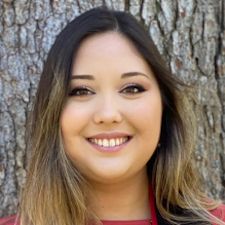Sleep Difficulties in Young Adults in College Linked to Adverse Childhood Experiences
Students who reported maltreatment had 2.47 times the odds of receiving an insomnia diagnosis than those without adverse childhood experiences.
Larisa D. Albers, PhD

New data into sleep difficulties in young adults in college found that those who experienced adverse childhood experiences (ACE) experienced higher odds of sleep difficulty, insomnia, and other sleep disorder diagnosis.
Despite ACEs such as maltreatment and household dysfunction being associated with increased risk of sleep difficulties among adults, the associations in young adult college populations have not thoroughly been examined.
In an effort to gain a better understanding of ACEs on sleep health in young adult college populations, investigators led by Larisa D. Albers, PhD, University of Southern California, conducted a literature review that also explored the potential sex and racial/ethnic differences in college-age individuals.
The analyses featured in the study were supported by seconday data collected from the American College Health Association-National College Health Assessment II (ACHA-NCHA-II), which was a national health assessment issued by 3606 public universities in California and 407 in Texas.
Only students 18-27 years old were eligible for inclusion.
Investigators utilized sleep health-based survey questions and sleep quality indices from the Pittsburgh Sleep Quality Index, Jenkins Sleep Scale, and the Fatigue Severity Scale to gather data. Meanwhile, 2 questions including “Have you been diagnosed with insomnia in the past 12 months?” and “Have you been diagnosed with some other sleep disorder in the past 12 months?” were used to measure self-reported sleep disorder diagnoses.
Furthermore, participants were asked if they experienced 1 or more of seven ACE items featured in the study including physical abuse, sexual abuse, verbal abuse, familial incarceration, household alcohol or drug misuse, and witnessing physical violence in the household.
Adverse childhood experiences were operationalized as maltreatment (physical, verbal, sexual abuse) and household dysfunction (familial incarceration, household alcohol or drug misuse, and physical violence between adults) to assess relative contribution of ACE types in sleep health.
All analyses were adjusted for biological sex, age, ethnicity, year in school, and state.
Overall, a total of 4013 students from California and Texas were included in the study, a majority of whom (70.8%) were female. Roughly half the student sample identified as Hispanic/Latino, while 20% identified as White,14% as Asian/Pacific Islander, 6% as American Indian/Alaska Native/Native Hawaiian, 5% as Biracial/Multiracial, and 4% as Black/African American.
Approximately 40% of these students reported at least 1 ACE. Among these participants, 1 in 4 (26%) reported maltreatment only, 34% reported household dysfunction only, and 40% reported both.
Notably, the average number of ACEs reported in Texas was significantly higher than California (P<0.01).
The 2 most frequently reported ACEs were alcohol misuse and verbal abuse with 20% of the sample reporting these stressors, followed physical abuse (13%), drug misuse (11%), witnessing physical violence in the household (10%), familial incarceration (10%) and sexual abuse (6%).
Though it varied by state, approximately 60% of the sample reported no history of ACEs.
Students who reported only household dysfunction or only maltreatment had higher odds of experiencing sleep difficulty in the past year [adjusted odds ratios: 1.52–2.40, 95% confidence intervals: 1.26–2.97) when compared to children without ACEs.
Students who reported maltreatment only had 2.47 times the odds of receiving an insomnia diagnosis.
Despite this, students who reported both had higher odds of all three sleep health indicators: past-year sleep difficulty, insomnia diagnosis, and “other” sleep disorder diagnosis.
Investigators suggested that the data pointed toward a need for improved sleep health programs and interventions on college campuses in an effort to manage negative health effects associated with ACEs.
"Future work should also attempt to find the most effective methods for intervening early in order to mitigate the negative effect of trauma on health and to stop the progression of negative health outcomes by identifying the individual, social and cultural assets that can be leveraged to promote resilience," the team wrote.
The study, "Adverse childhood experiences and sleep difficulties among young adult college students," was published online in the Journal of Sleep Research.